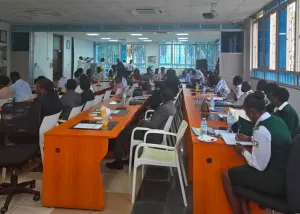
Why do our leaders insist on doing what you know has not worked before and will never work?Why do you insist on repeating what has failed?
Every student of development economics knows that this discipline attempts to answer three key questions: (1) what drives development and growth? (2) what are the structural features that characterise developing economies? and (3) is there a role for government policy? If so, which policies succeed? Today I will concentrate on the last question since there seems to be no debate or knowledge gap about the first two questions.
I am reading a book, in which the author, Joe Studwell, explains how the fastest growing countries in East Asia guided their economies using three critical government interventions to speed up economic development.
The first main intervention was the restructuring of agriculture as a highly labour-intensive household farming to maximise output. Asia achieved this by making use of all the available labour in their poor economies to push up yields and output to the highest possible levels. They also reformed land ownership, quite radically, to ensure that the land was made available on an equal basis among the faming population.
Secondly, governments in Asia directed investment and entrepreneurs towards manufacturing (as a second stage of economic transformation). In East Asia, the manufacturing sector was nurtured on subsidies that were conditioned on producing products strictly for export — the so-called “export discipline”.
Lastly, in Asia governments intervened in the financial sector to focus capital on intensive, small-scale agriculture and on manufacturing development.
The State’s role is to keep money targeted at a development strategy that produces the fastest possible technological learning rather than leave banks to lend for short-term returns and individual consumption.
Stop blaming World Bank
In Uganda, and Africa in general, we have in the last three decades followed the advice of the World Bank and the International Monetary Fund (IMF), the two most powerful institutions in global trade and finance, to starve agriculture of public finance, to throw away the idea of industrial policy, and to leave banks to lend as they wish — often giving more out more money as wedding loans than loans to farmers and manufacturers!
However, blaming the WB/IMF today is very unfair. The two institutions came out a decade ago and conceded that their policy description was wrong. In April 2002, a study by the Structural Adjustment Participatory Review International Network (SAPRIN), which was conducted in collaboration with the World Bank, national governments and civil society, concluded that “SAPs have been expanding poverty, inequality and insecurity around the world.”
The study found that (1) trade and financial sector reforms had destroyed domestic manufacturing in poor countries leading to massive unemployment, (2) agricultural, trade and mining reforms had reduced the incomes of small farms and poor rural communities, (3) labour market reforms and privatisation had resulted in lower wages, less secure employment and fewer benefits, and (4) the cutting of health and education and the introduction of user fees for these services, when combined with higher utility rates, had resulted in “a severe increase in the number of poor as well as a deepening of poverty.
It is upon this and other studies that in September 2005, the World Bank in a paper entitled, “Africa: The Development Challenges of the 21st Century”, conceded that the SAPs or the “Washington Consensus”, as these polices came to be called after 1990, were a mistake.
A few months later in June 2006, the World Bank’s former Chief Economist, Nobel Prize Laureate Joseph Stiglitz, wrote a book, “Making Globalization Work,” in which he further revealed that at the Bank they had come to realise that SAPs, globalisation in its current form, and other one-size-fits-all policies and programs did not work.
Lessons we should’ve learnt
Two years later, in July 2008, Dani Rodrik, a top development economist at Harvard University, in his fascinating paper, “Goodbye Washington Consensus; Hello Washington Confusion,” confirmed how unexpectedly deep and prolonged collapse in output hit all countries that adopted the Washington Consensus policy reforms, and advised them to abandon them.
Earlier in 2004, at the Barcelona Development Agenda Summit, a meeting of the who-is-who among development economists, it had been concluded that only those nations that thought out home-grown pragmatic policies regarding regulation, export and industrial promotion and technological innovation and knowledge acquisition will succeed in igniting sustainable growth.
Back in Uganda, despite all these revelations — by the very people and organisations that authored the economic policies we are trying to apply in our quest for economic transformation — we have insisted on implementing the policies that have been confirmed that they don’t work.
In its three decades at the helm, the NRM government on its part should have learnt four things: (1) that the SAPs generate some growth that is not reaching the poor, especially in the rural areas; (2) that the GDP growth generated by SAPs is not sustainable; (3) that the benefits of SAPs-generated growth go to just a few people, mainly foreigners who own the companies that dominate the growing sectors and a few of their agents; (4) that as long as we continue on the same path we will build a rich economy with poor people. These are very clear lessons written all over the economy.
Yet several things continue to happen in this country which would make any thoughtful person wonder whether as a people we are serious or actually think like other human beings.
For example, it is now conventional wisdom that capital account liberalisation brings about disastrous capital flows that ruin the economy through speculative bubbles and rapid depreciation of the currency. We also know that an open capital account facilitates in and out flows of money at the slightest of economic disturbances which are inevitable, hence causing the currency to go into freefall.
By simply clicking a computer, we can access empirical evidence that clearly shows that countries with well-functioning economies use prudential controls on capital flows to mitigate the contagion effect of international flows of “hot money” in order to prevent speculative bubbles. Evidence is also everywhere that some countries even do this despite protestations from the IMF. So, why do we still have an open capital account at a time when all countries with well-functioning financial systems have reviewed this lunacy?
Be wrong, but don’t stay wrong!
Personally I have talked to several Senior Resident Representatives of the IMF in Uganda to find out whether it was actually still the Bretton Woods’ policy to force countries to open up their capital accounts.
They have told me many countries have controlled their capital markets and that this has not stopped the IMF/WB from working with these countries. The former IMF Resident Rep to Uganda, Thomas Richardson, actually one time wondered why Uganda’s capital market is excessively liberalised to the extent that we don’t have even the slightest control over movement of money in and out of the country.
Anyway figures don’t lie; all the countries that have managed to sustain growth and stabilise their macroeconomies did the following: (1) they did not liberalise their capital accounts; (2) they did not rush into multilateral commitments before they produced what to sell in the “free” markets; (3) they invested heavily in infrastructure, education and research; (4) they did not focus only on price stability but primarily on real stability, ensuring that new jobs were created in pace with new entrants to the labour force; (5) they regulated markets by crafting a market system on top of a planned system; and (7) although they also invited in foreign investments, they made sure that the guest firms transferred technology, trained local workers, and did not repatriate profits at will.
I assume that our leaders know these things because they are well travelled and some are also well read. So, why do you guys insist on doing what you know has not worked and will never work? Why do you insist on repeating what has failed?
Why do you still insist on promoting pro-market reforms that favour new entrants and consumers, and neglect the pro-business policies that would focus not only on raising the profitability of the established industries and businesses in the country, but also empowering them to become more competitive in both domestic and foreign markets? Why is it difficult for you to do what others are doing to accelerate economic transformation? And yet you feel you should continue managing the country!














Sunrise reporter
Leave a Comment
Your email address will not be published.